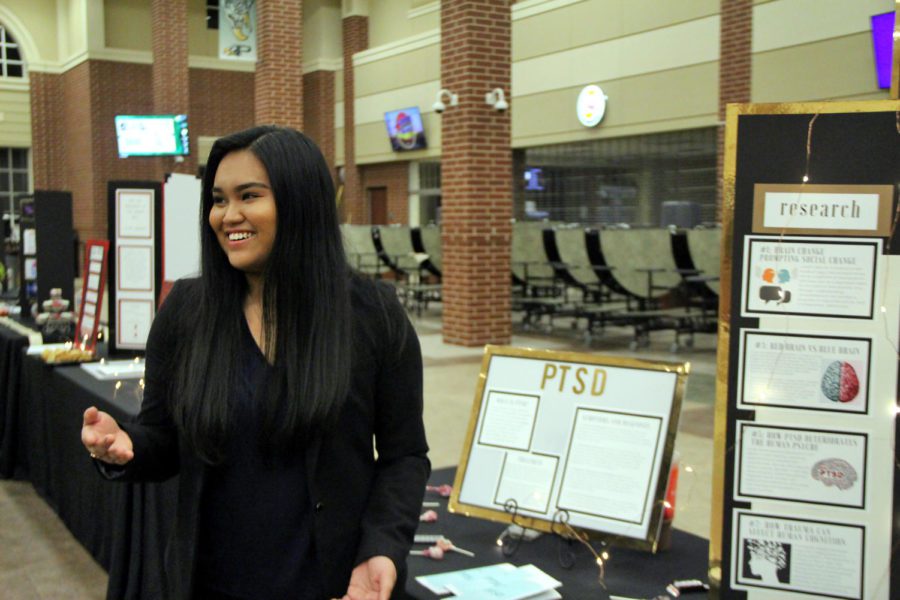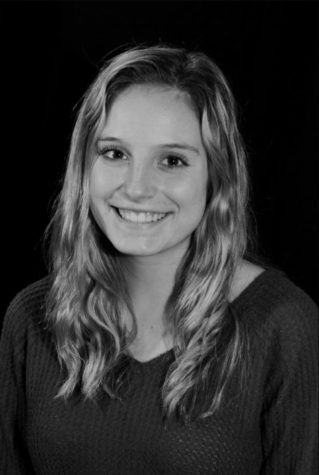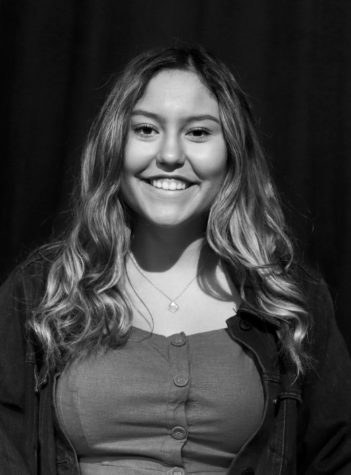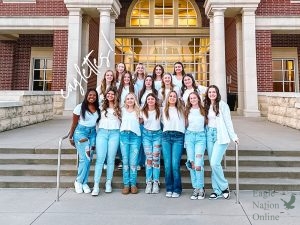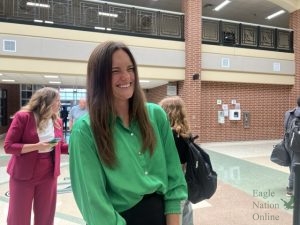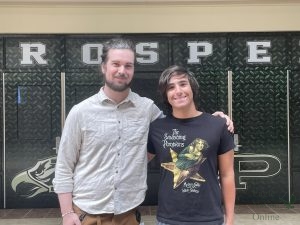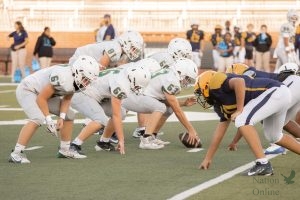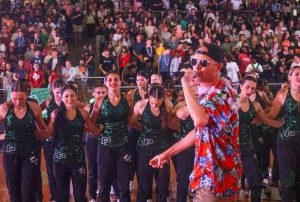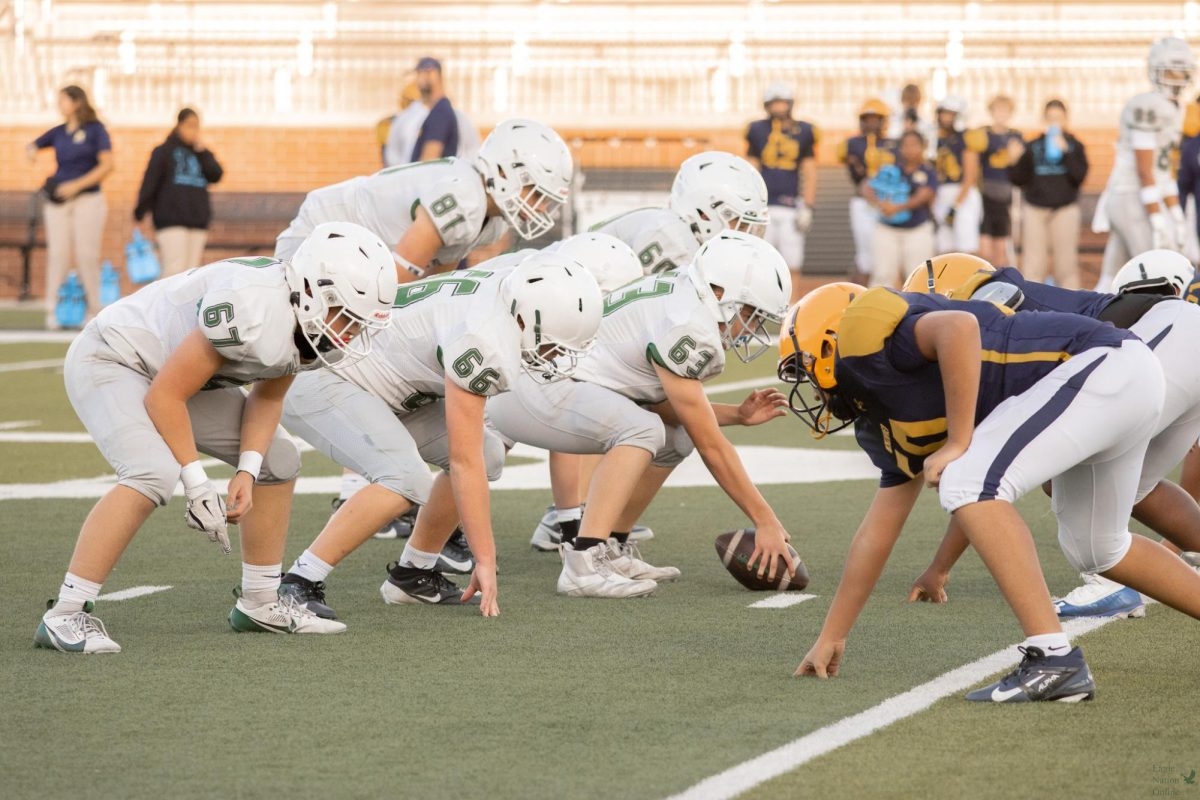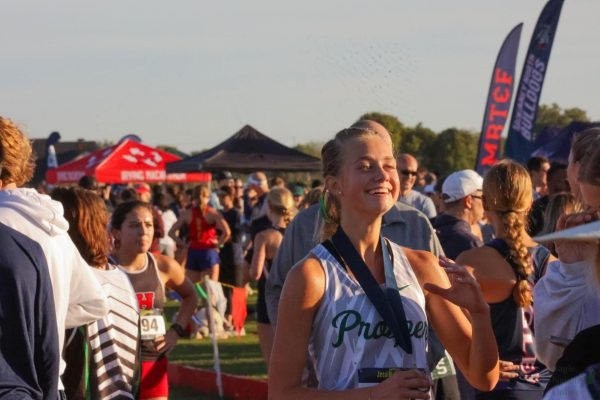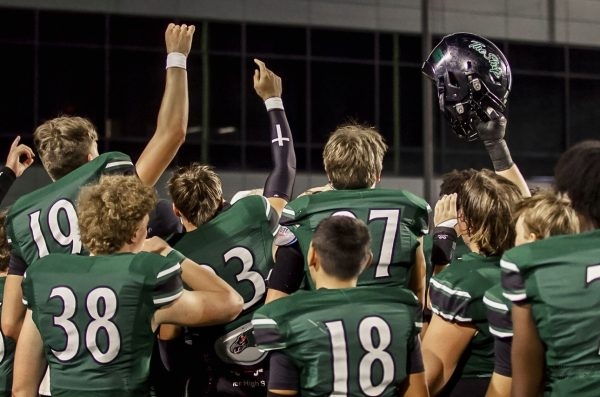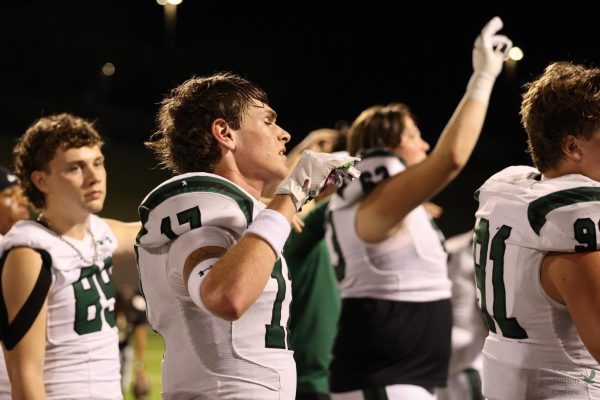Scholars present original work pieces at PCIS showcase
Senior Khayla Silverio presents her original work piece, focusing on cognitive science. This is Silverio’s second year in the PCIS program. “The fact that you get to choose what you want to do and what you want to learn about is a different type of liberation to your approach to education,” Silverio said.
December 14, 2018
All semester, students in the Prosper Career Independent Study (PCIS) program have worked on an individual original work piece to present to the community at the showcase that took place in the cafeteria Wednesday, Dec. 12. Studying a wide variety of career paths from exotic vet med to military intelligence, students put their personal touch on a project while preparing for their future.
Next semester, students will develop their final project to be shown during their individual presentations May 15.
“Originally, I was focusing on pediatric sports medicine, but now I’m kind of gearing towards sports neurology,” senior Jordan Shaw said. “I think PCIS is such an important class to take because you’ll learn more about your field of study. I thought sports medicine was just bones, but now I realize it’s diseases, neurology, psychology. There’s a lot of stems that you could go into with sports medicine. Now I’m more open-minded about what I can do within sports medicine.”
Parents, teachers and others in the community were offered a variety of treats to partake in while they listened to the students presentations.
“I think this is an important class because students get to delve into their passion early on in high school, which gives them the opportunity to learn more about their passion,” Mr. Dedrick Buckles said. “Also to see whether it’s something they truly want to do or go a different route. It’s an opportunity to learn from others and live the life of their mentor from time to time. They’re very passionate about whatever they’ve studied, and it definitely shows whenever they speak.”
The students were given opportunities to work alongside their mentors in a professional setting.
“My original work this year consisted of researching PTSD,” senior Khayla Silverio said. “I was really interested in the fact that everyday people can suffer from PTSD throughout their lives. I know that a lot of the research that we do isn’t what you’re going to have in a traditional classroom setting. Going out to classes at UTD, it is quite different from the high school education.”
Beginning in January, PCIS students will meet with their mentor once a week at their place of work.
“With a regular internship, sometimes you’re clerking or answering phones,” Mrs. Tiffany Ballard said. “With a mentorship, they take you right alongside with them into the boardrooms and meetings. It really opens the doors.”
Leaders of the program, including Ballard, said if students don’t know what career path they would like to follow, they can research and experiment with different fields to ensure they enjoy what they will study.
“Last year, I did orthopedic surgery,” Silverio said. “I wanted to work towards my major this year. The fact that you get to choose what you want to do and what you want to learn about is a different type of liberation to your approach to education.”
Ballard said she does not consider herself a teacher, but an adviser.
“We look at the whole class like what you would do in the workplace,” she said. “I’m the adviser, and you’re the employee. The only thing I really will say that I’ve tried to help with a lot is the professionalism piece. We go over what you should wear, how to shake a hand, how you make a phone call. But they have found their mentors on their own.”
According to administration and members of PCIS, students learn how to act professional while gaining communication skills. They also keep relationships with their mentors during college and beyond, which can help them make connections in the future.
“I’ve seen kids that are top of their field in school and take the hardest classes that we offer, but they struggle having a conversation,” Ballard said. “Most people can’t make the phone call or write the thank you note because it’s not something that generations are passing down to each other. So you’re going in and arming yourself with those soft skills that other people your age don’t have. You go to college with that, and you’re already ahead of your peers.”



